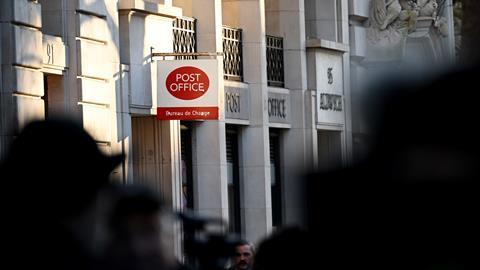The Post Office paid its lawyers Herbert Smith Freehills a £15m ‘transitional’ fee after removing them from compensation work, the Gazette can reveal.
An engagement letter which emerged this week shows that HSF was awarded the contract earlier this year to facilitate handover to a new provider, Pinsent Masons, to oversee the Horizon Shortfall Scheme (HSS).
HSF was criticised in Sir Wyn Williams’ report this week for the way it had handled the HSS scheme. Williams, chair of the three-year public inquiry into the Horizon IT scandal, said he was persuaded by the evidence of non-executive shareholder Lorna Gratton who had expressed the view that HSF was too ‘legalistic’ in its discussions with claimants and ‘prone to argue, unnecessarily, about comparatively small sums of money’.
Williams added: ‘In the difficult and substantial claims, on too many occasions, the Post Office and its advisors have adopted an unnecessarily adversarial attitude towards making initial offers which have had the effect of depressing the level at which settlements have been achieved.’
Williams reported that as of December 2024, HSF had been paid £67m by the Post Office for its work on HSS claims. The firm also received a further £15m for its advice on the separate Overturned Convictions Scheme.
HSF has yet to respond to requests for comment following the Williams report.
Read more
The firm had been involved in the compensation schemes from the start, despite having represented Post Office in the heavily-contested Bates group litigation which gave rise to claims. But it is understood that in October 2024, Post Office ran a competition to appoint an alternative legal adviser to support the schemes and subsequently appointed Pinsent Masons to replace HSF.
To effect an orderly handover, the organisation deemed it necessary to draw up a new contract with HSF. This transition contract was awarded to HSF without a formal procurement process as it was determined that the firm was the sole provider capable of fully understanding the schemes.
‘HSF is the only contractor that is capable of providing the transitional services because only it has the knowledge of the schemes to be able to transfer to PM,’ said the Post Office. ‘HSF was closely involved in the design and initial operation of the schemes, it has assessed thousands of HSS cases, it holds the contracts with the independent HSS panel and holds data and documentation that POL requires, will continue to require, and will need to be transferred to POL and PM.
‘HSF is the only organisation that is technically capable to transfer the knowledge, data and documentation that it holds to POL and to PM. It would not be technically possible to appoint another firm to provide the transitional services on HSF’s behalf.’
To consider another provider would have caused ‘significant disruption’ to the schemes and almost certainly added substantial delay in the provision of redress for sub-postmasters.
HSF disputes partner Alan Watts appeared before the House of Commons business and trade committee last year and defended the sums received by his firm. He pointed out the firm has been working on the scheme for five years and the instruction has involved 370,000 hours of work, 80% of which have been done out of the low-cost centre in Belfast.
Williams said this week that 10,000 eligible claimants are in the different Horizon compensation schemes, but that number is likely to rise by hundreds if not thousands. It involves not just those sub-postmasters who were convicted or subject to civil action, but also those whose branches had Horizon-related shortfalls and in many cases put in their own money to plug the apparent gaps. Thousands of sub-postmasters were suspended on account of apparent shortfalls and a significant number of those had contracts terminated.
The HSS scheme is likely to grow if the government agrees to Williams’ recommendation that close family members should be able to claim for their suffering.
In its annual report and financial statements for the year ended 30 April 2024, HSF LLP’s profit before tax increased by 31% to £278.6m. The firm reported around £708m in revenue for the year and its highest-paid member received a total remuneration of £3m – up from £2.4m the year before.
This article is now closed for comment.
































19 Readers' comments